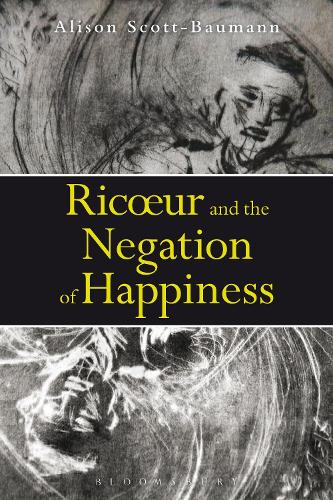
Ricoeur and the Negation of Happiness
(Hardback)
Available Formats
Publishing Details
Ricoeur and the Negation of Happiness
By (Author) Dr Alison Scott-Baumann
Bloomsbury Publishing PLC
Bloomsbury Academic
24th October 2013
United Kingdom
Classifications
General
Non Fiction
Philosophy: logic
160
Physical Properties
Hardback
200
Width 156mm, Height 234mm
463g
Description
Ricur lectured and wrote for over twenty years on negation (Do I understand something better if I know what it is not, and what is not-ness) and never published his extensive writings on this subject. Ricur concluded that there are multiple forms of negation; it can, for example, be the other person (Plato), the not knowable nature of our world (Kant), the included opposite (Hegel), apophatic spirituality (Plotinus on not being able to know God) and existential nothingness (Sartre). Ricur, working on Kant, Hegel and Sartre, decided that all these forms of negation are incompatible and also fatally flawed because they fail to resolve false binaries of negative: positive. Alison Scott-Baumann demonstrates how Ricur subsequently incorporated negation into his linguistic turn, using dialectics, metaphor, narrative, parable and translation in order to show how negation is in us, not outside us: language both creates and clarifies false binaries. He bestows upon negation a strong and central role in the human condition, and its inevitability is reflected in his writings, if we look carefully. Ricur and the Negation of Happiness draws on Ricurs published works, previously unavailable archival material and many other sources. Alison Scott-Baumann argues that thinking positively is necessary but not sufficient for aspiring to happiness - what is also required is affirmation of negative impulses: we know we are split by contradictions and still try to overcome them. She also demonstrates the urgency of analysing current socio-cultural debates about wellbeing, education and equality, which rest insecurely upon our loose use of the negative as a category mistake.
Reviews
Here we have the more than welcome sequel to Alison Scott-Baumann's highly regarded and in many ways path-breaking study Ricoeur and the Hermeneutics of Suspicion. It takes us further in two directions. On the one hand it treats a topic, that of negation in its various forms, that was central to Ricoeur's philosophical interests early and late. On the other it proceeds by periodically expanding that focus to issues of ethical, cultural, and socio-political concern that have a direct and powerful contemporary relevance. This book is the product of original scholarship, much hard thinking, and a good deal of shrewdly applied practical as well as theoretical wisdom. -- Christopher Norris, Distinguished Research Professor in Philosophy, Cardiff University
Highly readable, relaxed, occasionally almost colloquial style, markedly different from much philosophical discourse that can be forbiddingly abstract and cryptic even for expert readers [] Alison Scott-Baumann has made a useful contribution not just to Ricoeur scholarship, but precisely to the philosophical-activism that she embraces. -- Andreea Deciu Ritivoi * H-France *
Author Bio
Alison Scott-Baumann is Professor of Society, Philosophy and Belief at Derby University, Visiting Research Fellow at Lancaster University, UK and Leverhulme Emeritus Research Fellow 2012-13. She is a member of the Fonds Ricur Conseil Scientifique.
